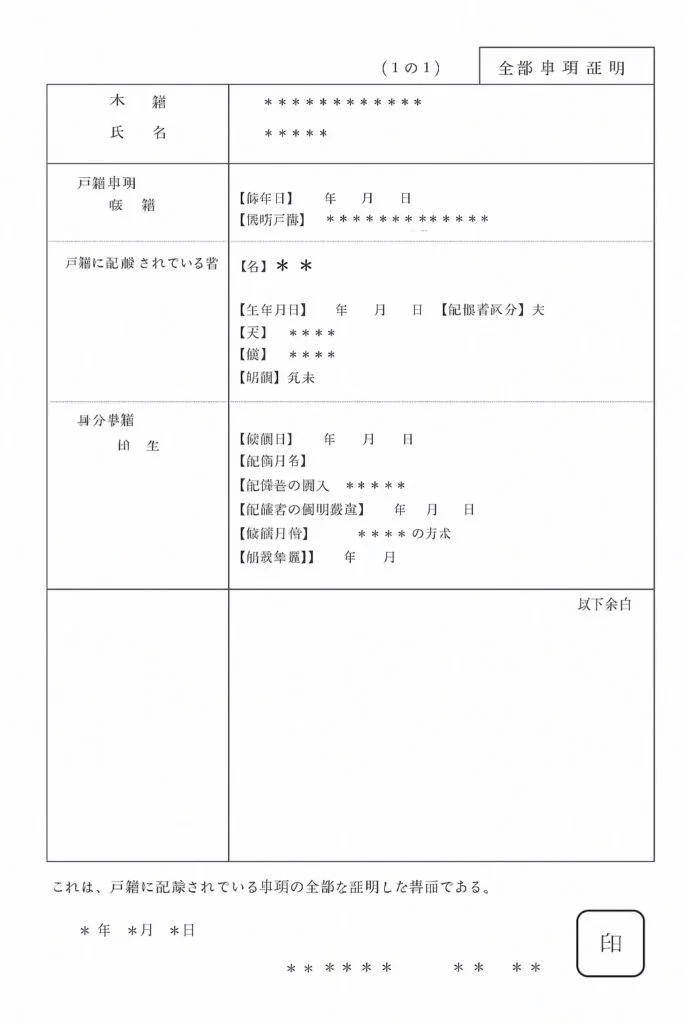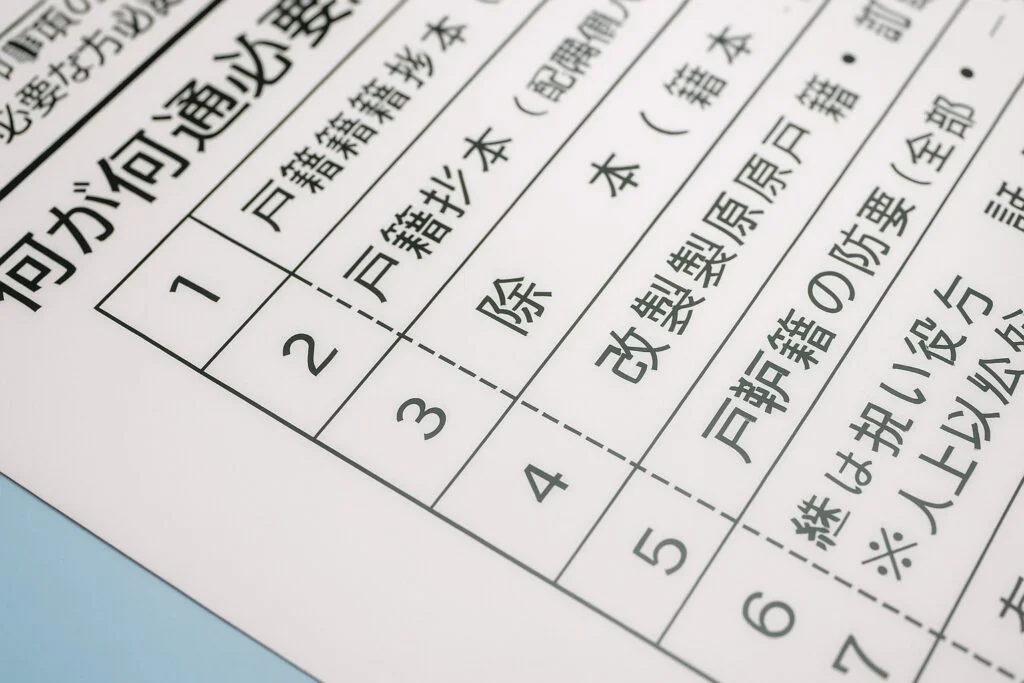
🅿️ Many Japanese citizens living in or moving to Bali find themselves needing to submit their Koseki Tohon (戸籍謄本)—a Japanese family register—for visa, marriage, inheritance, or residency purposes 🇯🇵📄 But the rules around using this document in Indonesia aren’t always clear.
🅰️ If you submit your Koseki in Japanese without any legalization, it will almost certainly be rejected by Indonesian authorities or embassies 😓 Many people don’t know that this document needs both a sworn translation and legalization or apostille to be accepted in Bali.
🆂 The good news? With the right process, it’s entirely possible to make your Japanese family register valid for official use in Indonesia ✅ You just need to understand how to translate it accurately and get it apostilled in Japan before using it here.
🆃 “When I applied for my spousal KITAS in Bali, I didn’t realize my Koseki had to be legalized,” says Naomi from Osaka. “Luckily, I got help from a bilingual visa agent and everything went smoothly after that!” 💌
🅴 For instance, if you’re getting married in Bali or applying for a family visa, your Koseki may need to show your marital status or parent-child relationship. But to do that officially, the document must be translated into Bahasa Indonesia or English, then used with the proper legal stamps 📑
🅰️ Ready to make your Koseki work in Bali? 🌺 This blog will show you how to translate and legalize Japanese documents step by step, so you can submit them with confidence for any Indonesian legal or immigration process.
Table of Contents
- Why You Can’t Use a Japanese Koseki Without Legalization in Bali ⚠️
- The Importance of Translating Your Koseki for Indonesian Authorities 🌐
- How to Apostille Japanese Family Documents for Use in Indonesia 🏛️
- Where to Get Your Koseki Sworn Translated in Bali or Japan 📖
- When a Koseki Is Required for Marriage, Visa, or Inheritance Cases 📄
- Why Embassy Requirements Differ Based on Document Type and Purpose 🏢
- Tips for Avoiding Delays in Koseki Legalization or Translation ⏳
- FAQs About Apostille, Translation, and Using Koseki Abroad ❓
Why You Can’t Use a Japanese Koseki Without Legalization in Bali ⚠️
A Japanese Koseki (family register) is a legal document used to prove identity, marriage, birth, or family status in Japan.
However, if you plan to use this document in Bali—whether for a visa, marriage, or legal process—you can’t simply present the original. Indonesian authorities and embassies require that it go through a process of translation and legalization.
Without this, your Koseki may be rejected or cause delays in your application 🚫🚤
The Importance of Translating Your Koseki for Indonesian Authorities 🌐

Indonesian government offices, such as immigration or civil registry, require documents in Bahasa Indonesia or English.
That means your Japanese Koseki must be translated by a sworn translator. This is different from casual translation—a sworn translator is legally recognized by Indonesian law to provide official translations that embassies and ministries accept 📄
If your translation doesn’t carry an official stamp and certificate, your submission could be invalid. To avoid complications, make sure you hire a Kemenkumham-approved translator.
How to Apostille Japanese Family Documents for Use in Indonesia 🏛️
If you’re using your Koseki for official purposes like visa, inheritance, or marriage, it must first be apostilled in Japan. The apostille confirms the document is authentic and ready for international use. This step is done through Japan’s Ministry of Foreign Affairs (MOFA) 🌟
Steps:
Request your Koseki Tohon or Koseki Shohon from your city hall in Japan
Take it to MOFA in Tokyo or Osaka for apostille
Send it to Bali for sworn translation
This sequence ensures the document meets both Japanese and Indonesian requirements.
Where to Get Your Koseki Sworn Translated in Bali or Japan 📖
You can find sworn translators in Denpasar or Jakarta, or work with agencies that specialize in visa and document legalization.
Alternatively, some Japanese translators in Japan are certified to provide sworn Indonesian or English translations 📢
Always check if your translator is registered with Kemenkumham (Indonesian Ministry of Law). The sworn translation should include:
All names and addresses
Japanese characters and Romanized versions
Stamp and signature
A good agency will also handle apostille + translation together, saving you time and confusion ✅
When a Koseki Is Required for Marriage, Visa, or Inheritance Cases 📄
There are many reasons you may need to use your Japanese Koseki in Indonesia:
Marriage registration with an Indonesian citizen ❤️
Applying for a spousal KITAS
Handling inheritance or property matters
Applying for children’s documents or school enrollment
In each case, authorities need to verify your legal family status—and that’s what the Koseki provides. But it must be officially translated and apostilled first, or it won’t be accepted ⚠️
Why Embassy Requirements Differ Based on Document Type and Purpose 🏢
Different embassies or consulates have different policies. For example:
Immigration offices need certified translations in Bahasa Indonesia
Embassies may require English versions
Legal courts may demand additional notarization
Also, the type of Koseki matters—Tohon shows the whole family, while Shohon shows individual details.
Make sure to ask your agent or legal advisor which type is needed for your purpose. Clarity saves time and prevents rework ⏳
Tips for Avoiding Delays in Koseki Legalization or Translation ⏳
Delays and rejections happen when people:
Forget to get the apostille before translating
Use translators who aren’t certified
Submit scanned or photocopied documents
Mix up the document types (Shohon vs. Tohon)
To avoid issues:
Use an experienced Bali-based agency
Confirm the exact document your case requires
Ask about timelines, fees, and process from the start
Always request original certified translations 🔒
FAQs About Apostille, Translation, and Using Koseki Abroad ❓
-
Can I use my Koseki without translation?
No. It must be translated by a sworn translator for use in Indonesia.
-
Where can I get it apostilled in Japan?
At the Ministry of Foreign Affairs (MOFA) in Tokyo or Osaka.
-
How long does the whole process take?
Usually 7–10 working days, depending on postal time and translator availability.
-
Is Koseki valid for visa applications?
Yes, but it must be current, translated, and legalized.
-
Can I use a copy of the Koseki for this process?
Some embassies accept copies, but many require the original with apostille.
-
What does it cost?
Apostille in Japan is free. Sworn translation in Bali is 300k–500k IDR. Agency packages are 1.5–2.5 million IDR total.







